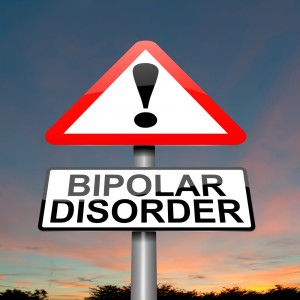
Bipolar disorder features as one of the top ten disabling disorders for working age adults. There are numerous risks including suicide, increased mortality and reduced social functioning associated with the disorder.
Key to enabling recovery is preventing acute episodes from occurring, with each episode increasing the risk of future ones. Therefore ensuring long-term maintenance treatment for bipolar disorder is critical.
Methods
The authors (53 psychiatrists from across the world) conducted a systematic search of the literature which aimed to identify biological treatments only. It is not clear how many papers contributed to the final 65 page report.
The review focused mainly on Bipolar 1, although Bipolar 2 and rapid cycling was included, other similar disorders such as schizoaffective disorders were excluded. The search included Medline, Embase, Web of Science, Cochrane, Treatment guidelines, and hand searching and updated a previous 2004 publication (Grunze et al. 2004).
Each identified paper was ranked according to methodological rigor, and then the evidence of effectiveness graded across 8 clinical domains, such as, safety, tolerability, suicide prevention, and effectiveness.
Meta-analysis was not possible, due to heterogeneous samples, differing definitions of remission and inconsistent outcome measurement.
The final ratings were adapted following a consensus exercise of 53 psychiatrists, although it is not clear how this process changed the rankings and final report.
Results

Aripiprazole, Lamotrigine, Lithuim, Olanzapine, Quetiapine and Risperidone were all recommended as effective treatments
- 21 different treatments emerged from the papers reviewed
- The majority of the biological treatments were drugs
- Lithium appeared to have the most robust evidence base as a long-term treatment
- Six medications received the highest recommendation in two of the domains (Aripiprazole, Lamotrigine, Lithium, Olanzapine, Quetiapine, Risperidone)
- Two of these drugs (Risperidone and Olanzapine) had their evidence downgraded due to safety issues (side-effects)
- Older typical antipsychotics and antidepressants were combined into two single groups due to lack of trial evidence
- ECT and Omega-3 were also identified as possible interventions, although they lacked evidence
Conclusions
The authors concluded:
We identified six medications with the two highest recommendation grades, based on their evidence for different aspects of bipolar disorder maintenance treatment in diverse patient population. None of these medications can fully cover all areas and patient groups equally well; so we are pleased to see that the number of alternatives has grown since the first edition of this guideline in 2004 (Grunze et al. 2004). We also notice that despite the development of promising alternatives, lithium is still a top standard for the long-term treatment of bipolar disorder.
Other thoughts
This is a useful report which aims to synthesise studies of long-term treatments, it should be used in conjunction with an earlier published reports which focused on the treatment of acute exacerbations of bipolar disorder (Grunze et al., 2009 and 2010). The evidence base for each drug across the 8 domains is summarised in considerable detail. NICE (2006) in their own guidance recommended Lithium, Olanzapine and Valporate for the long-term treatment of bipolar disorder. Valporate was not one of the highest recommended treatments in this report, and has serious adverse effects in women of child-bearing age.

Recovery is a poorly defined concept in bipolar disorder research
More sophisticated research is needed to evaluate long-term treatments for bipolar disorder, most current studies fail to apply standardise outcome measures, treatments and are of small samples. The report provides a detailed discussion of the pitfalls of current research in this area. Notably, remission is a poorly defined concept for research but also in clinical work, recovery is even less well defined as a concept in bipolar disorder. There needs to be considerably more discussion and agreement of outcome measurement in long term studies.
Although there was insufficient evidence of single antidepressants/typical antipsychotics, this continues to be widely used in clinical practice. These drugs groups need to be subjected to longitudinal studies of efficacy and acceptability with bipolar disorder as they have with other disorder such as psychosis.
Links
- Grunze H, Vieta E, Goodwin GM, Bowden C, Licht RW, Möller HJ and Kasper S. The World Federation of Societies of Biological Psychiatry (WFSBP) Guidelines for the Biological Treatment of Bipolar Disorders: Update 2012 on the long-term treatment of bipolar disorder The World Journal of Biological Psychiatry 2013; 14(3): 154-219.
- Grunze H, Vieta E, Goodwin GM, Bowden C, Licht RW, Möller HJ and Kasper S. WFSBP Task Force on Treatment Guidelines for Bipolar Disorders. The World Federation of Societies of Biological Psychiatry (WFSBP) Guidelines for the Biological Treatment of Bipolar Disorders: Update 2009 on the Treatment of Acute Mania The World Journal of Biological Psychiatry 2009 10:2, 85-116
- Grunze H, Vieta E, Goodwin GM, Bowden C, Licht RW, Möller HJ and Kasper S. The World Federation of Societies of Biological Psychiatry (WFSBP) Guidelines for the Biological Treatment of Bipolar Disorders: Update 2010 on the treatment of acute bipolar depression. The World Journal of Biological Psychiatry 2010; 11(2): 81-109.
- Bipolar disorder: The management of bipolar disorder in adults, children and adolescents, in primary and secondary care (PDF). NICE guideline, CG38, Jul 2006.

New guideline says lithium still appears to have the most robust evidence base as a long-term treatment for bi… http://t.co/fjhYDuhuDr
Summary of study looking at biological treatments for bipolar disorder from @Mental_Elf http://t.co/Xboqy3uuIh
See my 2nd blog for @Mental_Elf on guidelines for long-term treatment for #bipolar disorder http://t.co/2TTKIDwxN7
New guideline says lithium still appears to have the most robust evidence base as a long-term treatment for… http://t.co/7CbnYwBhBy
http://t.co/XPl7Dh3ayy
World Federation of Societies of Biological Psychiatry publish new #bipolar disorder guidelines http://t.co/11A9ekyBMi
@Mental_Elf Any review planned on Systemic Family Therapy for this diagnosis?
@JohnBaker_UoM blogs about new WFSBP guidelines for long-term treatment of bipolar disorder http://t.co/11A9ekyBMi
lithium still appears to have most robust evidence base as long term treatment for bipolar disorder » The Mental Elf http://t.co/24kpKhaxO4
Pls RT @BipolarUK “Recovery is a poorly defined concept in bipolar disorder research” http://t.co/11A9ekyBMi
@Mental_Elf @BipolarUK let each client define what recovery means? #sfbt
http://t.co/XbTPDlIFa3 New guideline says lithium still appears to have the most robust evidence base as a long-term treatment for bipolar..
http://t.co/XbTPDlIFa3 @4n0nn4n4
Aripiprazole, Lamotrigine, Lithuim, Olanzapine, Quetiapine & Risperidone all recommended for bipolar http://t.co/11A9ekyBMi
@Mental_Elf is lamotrigine licensed for bipolar? I have it off-licence for major depression and replacement community psych wants to stop it
@Mental_Elf also medical doctors keep assuming I’m epileptic when they see it on my medication list
@lapsangsusie @Mental_Elf yes lamotrigine licensed in USA/UK for Bipolar, main use epilepsy=confusion. Please chat with Dr before stopping
@JohnBaker_UoM @Mental_Elf I don’t want to stop but psychiatrist not happy about previous psych giving it to me for depression (not bipolar)
My 2nd blog for @Mental_Elf on guidelines for long-term treatment for #bipolar disorder http://t.co/2TTKIDwxN7
#Lithium still appears to have the most evidence as bipolar disorder treatment http://t.co/SUcTejgA5t http://t.co/kJzZGpSlY4
Long term bipolar disorder studies should discuss and agree appropriate outcome measures http://t.co/11A9ekyBMi
@Mental_Elf what would be the short term treatment?
New guideline says lithium still appears to have the most robust evidence base as a long-term treatment for bipolar http://t.co/cgKmPZTpsV